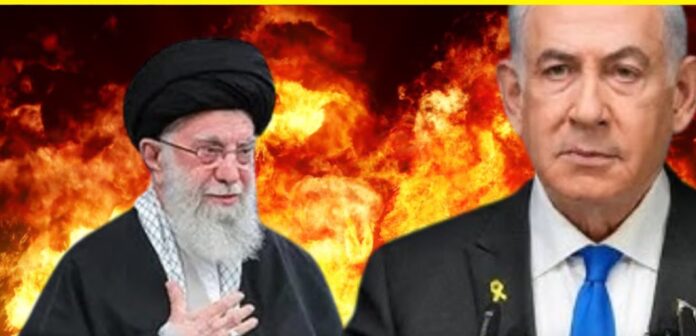Iran’s Khamenei warns Israel of severe punishment after strikes kill military and nuclear figures.
Iran’s Supreme Leader, Ayatollah Ali Khamenei, has issued a chilling warning to Israel following its devastating airstrikes on Tehran. In his first public statement since the attack, Khamenei vowed Israel would face a “bitter and painful fate” as Iran prepares to retaliate.
The statement, broadcast Friday morning via Iran’s state-run IRNA news agency, marked an ominous escalation in an already volatile Middle Eastern crisis. According to Iranian officials, the Israeli bombardment struck multiple targets across the capital, including sensitive military installations, nuclear sites, and residential areas. High-ranking military officers and top scientists were reportedly among the dead.
“Israel opened its wicked and blood-stained hand to a crime in our beloved country, revealing its malicious nature more than ever by striking residential centres,” Khamenei declared. His words underscored Tehran’s fury and hinted at a potential chain reaction of reprisals that could engulf the region.
While exact casualty figures remain unconfirmed, Iranian sources have painted a grim picture of widespread destruction and loss of life. The strikes represent one of the most daring Israeli military operations on Iranian soil to date, directly challenging Tehran’s power centre.
The unprecedented assault has jolted world capitals, raising alarms about the prospect of full-scale war between the two long-standing adversaries. Already locked in a bitter shadow conflict spanning cyber warfare, assassinations, and proxy battles across the region, this latest escalation threatens to push their confrontation into dangerous new territory.
Khamenei’s fiery rhetoric leaves little doubt about Iran’s intentions. “With this crime, the Zionist regime has set itself up for a bitter and painful fate, and it will receive it,” he warned. Iranian military officials are reportedly already preparing a range of options for a retaliatory strike, while diplomatic channels scramble to prevent further escalation.
The Israeli government has so far remained tight-lipped, neither confirming nor denying its involvement in the Tehran strikes. However, regional analysts view the assault as a clear message: Israel remains determined to cripple Iran’s military capabilities, particularly its nuclear ambitions, which Israeli leaders see as an existential threat.
International reaction to the attack has been swift. The United Nations, European Union, and major world powers have called for restraint, urging both sides to avoid further bloodshed. Washington, a key ally of Israel, has expressed deep concern over the situation while closely monitoring Iran’s response.
The danger of regional conflict spreading remains palpable. Iran’s vast network of allies and proxy militias—including Hezbollah in Lebanon, the Houthis in Yemen, and groups in Iraq and Syria—could be drawn into any broader confrontation. Military analysts warn that any retaliatory move by Iran might not be limited to direct strikes against Israel but could spark attacks on Israeli interests worldwide.
The airstrikes on Tehran have also reignited debates over Israel’s long-standing policy of pre-emptive military action to neutralise emerging threats. Previous strikes have targeted Iranian assets in Syria and covertly disrupted its nuclear programme, but this latest attack on Iran’s capital represents a dramatic escalation.
As Tehran mourns its dead and prepares its next move, the Middle East braces for what could become one of the region’s most dangerous episodes in recent years. The coming days will be crucial in determining whether the situation can be contained or whether the world is witnessing the opening salvos of a far wider and bloodier conflict.
